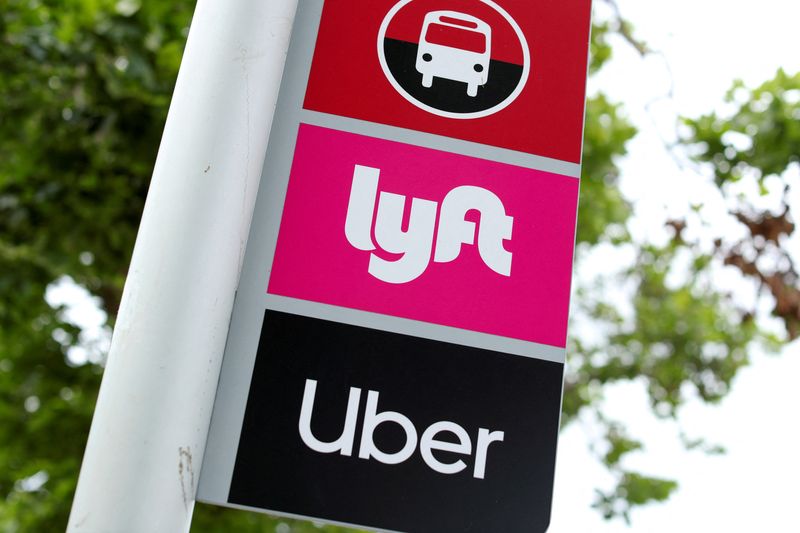By Daniel Wiessner
(Reuters) -The U.S. Supreme Court declined on Monday to hear a challenge by Uber (NYSE:UBER) and Lyft (NASDAQ:LYFT) to lawsuits by the state of California on behalf of drivers who signed agreements to keep legal disputes with the ride-hailing companies out of court in a legal fight over their status as contractors.
The justices turned away appeals by the two companies of a California state appeals court's ruling that let the Democratic-led state's attorney general and labor commissioner pursue claims that Uber and Lyft owe money to drivers who were misclassified as independent contractors rather than employees.
The companies have argued that federal law bars states from suing on behalf of anyone who signed agreements to bring legal disputes in private arbitration rather than court. That includes more than 60 million U.S. workers and virtually any consumer who joins a subscription service, accepts a company's terms of service or registers a product.
Theane Evangelis, a lawyer for Uber, in an emailed statement maintained that the California court's ruling was incorrect, and said the Supreme Court could decide the issue in a future case.
California filed separate lawsuits against the companies in 2020. A state appeals court in 2023 ruled against the companies in their challenge to the lawsuits. The California Supreme Court subsequently declined to hear their appeals.
California is one of several Democratic-led states that have accused Uber and Lyft of depriving drivers of minimum wage, overtime pay, reimbursements for expenses and other protections by labeling them as independent contractors. Most federal and state wage laws apply only to employees, making it much cheaper for companies to hire contractors.
Uber, Lyft and other app-based services have denied that they are employers of "gig workers" who may benefit from the flexibility of contracting.
The industry has advocated for state ballot measures allowing companies to treat workers as contractors in exchange for providing certain benefits. California's top state court in July upheld such a measure backed by Uber and Lyft and overwhelmingly approved by voters in the state in 2020.

Uber and Lyft in June agreed to adopt a $32.50 hourly minimum pay standard for Massachusetts drivers and pay $175 million to settle a lawsuit by the Democratic-led state's attorney general alleging they improperly treated drivers as independent contractors.
Uber and Lyft also have been sued by thousands of U.S. drivers who have said they should have been treated as employees. But few of those cases have yielded definitive rulings and many of them have been sent to arbitration, since most of the drivers for the companies sign arbitration agreements.